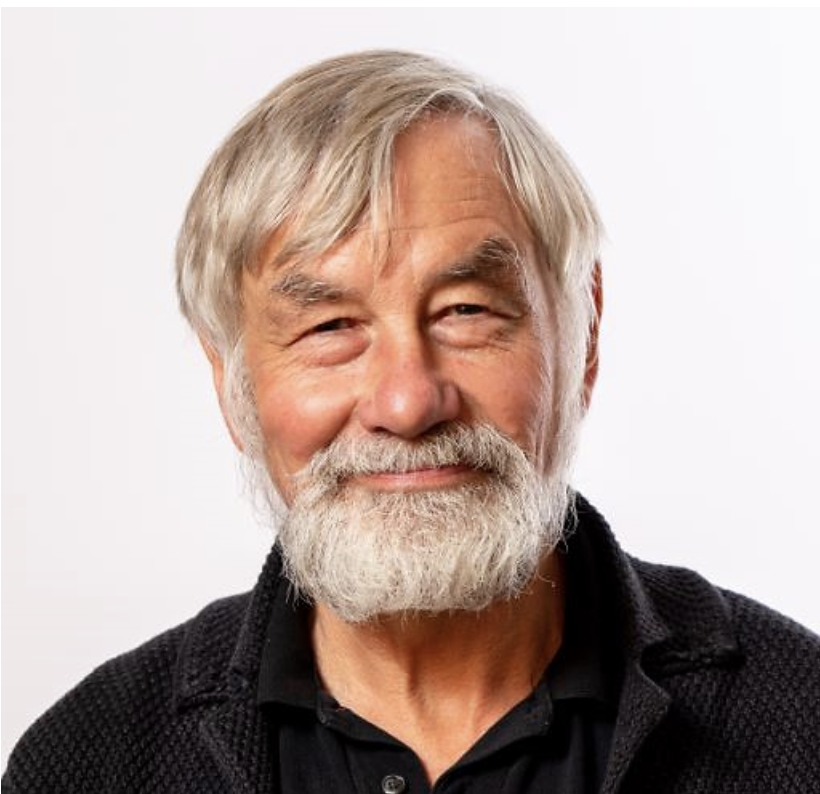My Callings From God
By Werner May
The Old Testament Scheme of Calling—Of Course, But…
Could it be that when we think of our own calling, we first recall the numerous Old Testament calling narratives—those of Abraham, Moses, and the prophets? Before our eyes and in our hearts, we carry what theologians call the Old Testament pattern of calling. But this is not— as we will soon see— the New Testament pattern of calling.
In the Old Testament, calling events follow a somewhat dramatic yet similar sequence:
a. An element of surprise
b. An experience of holiness
c. A feeling of being overwhelmed
d. A promise of God’s help
God appears completely unexpectedly—a burning bush, an angel’s visitation, a voice out of nowhere—yet unmistakably divine, holy, perhaps even God Himself. What follows is the mission, which often evokes an overwhelming response: I can’t do that. That’s not me. This must be for someone else.
Then comes God’s answer: You’re not telling me anything new. I know you, but I am with you. I will help you. You just have to go. I have chosen you.
Yes, such Old Testament calling experiences still happen today, but they are the exception, not the rule. In other words, if you are waiting for a similar calling experience, you may be waiting in vain.
The New Testament Understanding of Calling
In the New Covenant, the prerequisites for calling are different:
“The love of God has been poured out into our hearts through the Holy Spirit, who has been given to us.” (Romans 5:5)
“But when He, the Spirit of truth, comes, He will guide you into all truth.” (John 16:13)
Pious words? No. Reality—for everyone who lives out a relational, You-centered faith (where the essence of belief is in knowing and relating to God) rather than a that-centered faith (focused on doctrine and belief systems). Jesus takes our hand. Unbelievable? Yes, but real!
He is there! Not just occasionally, but always. He is not some distant force but a person, not a mere observer but an active, loving presence. And in His love, He is neither silent nor passive. He leads my life and speaks with me.
New Testament Calling Begins with the Call to Relationship
“We greet all there who have been set apart for God through union with Jesus Christ and called to be God’s people…” (1 Cor. 1:2)
Paul writes to the Corinthians, describing every Christian as called. A Greek dictionary informs us that “kalew” (kaleo) = “to call” denotes, in contrast to commanding or driving, the direct or mediated addressing of another with the aim of drawing them closer—physically or in relationship. Our calling into relationship with the triune God is the starting point of our faith journey—the one great calling!
Questions to Consider:
● Do I associate calling only with an extraordinary, grand mission?
● Is my calling to Jesus, my vocation, the great calling? Am I willing to place all other actions in second place?
Thesis 1: Calling, Yes, Definitely, But…
In my early years as a disciple, I imagined calling as a one-time event, tied to these questions:
● How do I find the door to my calling?
● When will it come?
● Can I miss it?
● What if I never find it?
I vividly remember the 1984 Congress of the Charismatic Renewal in Germany. Anglican pastor Colin Urquhart announced during his morning talk that he sensed God would call certain people during the closing service that evening. I eagerly anticipated the moment, convinced that this would be my hour—the great call of God! Then, as the evening service reached the calling moment, I did not step forward with the others. A deep peace settled within me, assuring me that I was not meant to be there.
Still, the question arose: If not today, then when?
The four questions above reflect not just curiosity and anticipation but also anxiety. No wonder I often meet people who are allergic to the topic of calling—worn down by grand testimonies of others’ callings, stories of missionaries setting off only to hit dead ends, or vocations filled with unexpected hardship.
Here’s the good news: You may already be living in your calling far more than you realize!
Thesis 2: Callings Develop in a Hierarchy, Building on One Another
New Testament calling begins with a call to relationship.
“We greet all there who have been set apart for God through union with Jesus Christ and called to be God’s people…” (1 Cor. 1:2)
Calling is the beginning of a journey with God—one that includes many subsequent callings. These invitations from God, large and small, have come throughout our lives, but we rarely recognize them as callings because they lack the dramatic elements of Old Testament encounters.
Using the image of a tree (see the attached graphic):
● Our relationship with God is the roots—deeply planted in Him, drawing strength from Him.
● A strong trunk grows—our transformed identity in Christ.
● Branches extend outward—our actions and service.
● Fruit develops—visible impact in the world.
Key Questions for a Life of Calling:
1. Out of whom and with whom do I do what I do?
2. As whom and how should I do what I do?
3. And finally: What should I do?
A calling, no matter how spectacular or mundane, is meaningless if carried out apart from Jesus—if done merely out of duty or fear of consequences.
Thesis 3: Calling Means Receiving Assignments
To live as someone called by God means living with assignments. That’s what the following pages will explore—how to seek, recognize, and step into our callings, bearing abundant fruit like a well-rooted tree. But first, the foundation: our faith, our bond with God through Jesus Christ, is always the starting point.
As a called person, I want to live in assignments! This applies to every part of my life—personal, church, professional, leisure. I don’t want to do anything apart from God. And yet, that doesn’t burden me. I know I’ll forget Him at times, but He never forgets me. Even if I pursue tasks He never intended, mistaking my own desires for His call, He remains faithful. He blesses my efforts because my heart is set on His kingdom.
I often say, somewhat playfully, that God can turn dung into fertilizer. And fertilizer, after all, is essential. If we stop waiting for one grand calling and instead embrace the assignments placed before us—big and small—we will find purpose unfolding in surprising ways. Consider Philip in the Bible: a man of multiple assignments, each one shaping his journey.
In my own life, I’ve experienced this firsthand:
A Surprise Evangelistic Assignment (1989)
Three years after founding the IGNIS Academy for Christian Psychology, I was immersed in teaching, counseling, and building an institute. Then one evening, I got a call: Would I take responsibility for a worldwide evangelistic event, the Torch Relay for
Jesus, in my region? My first instinct was to say no—I already had my calling, my plate was full. But instead, I paused, prayed with my wife, and to our surprise, we said yes.
I had no time for it. It wasn’t my area of expertise. And yet, those two weeks of preparation and events led to deepened connections between churches in our region—relationships that blessed me for decades. Saying yes to an unexpected assignment brought unexpected fruit.
The Bicycle Repair (Years Later)
One afternoon during prayer, I had an odd impression: I should fix one of my children’s bicycles. That evening, I casually asked if any bikes were broken. My kids were stunned I even noticed! Sure enough, one needed repair, and I took it on as an assignment from God.
A small act of service? Maybe. But in doing so, I encountered a wound from my own childhood. My father had mocked my clumsy repair attempts, leaving me hesitant and unsure. This time, however, the repair was easy. It went well. And in that simple act, God brought healing.
Embracing the Unexpected
Our callings aren’t always grand or obvious. Sometimes they come through a phone call, a nudge in prayer, or even a broken bicycle. Living as the called means being open to God’s assignments—whether they reshape a region or restore a heart.
Thesis 4: God Does Not Call the Gifted; He Gifts the Called
What do you mean, God does not call the gifted, but He gifts the called? It is not primarily our gifts and abilities that determine our confidence, nor do they guarantee fruitfulness and success. Rather, it is God’s presence and faithfulness that sustain us. His faithfulness compensates for the gifts we lack, develops the ones we have, and often sends others to support and complement us.
If I only did what I believed I could do—limited by my own assessment of my abilities—where would that lead? How much would truly be accomplished? Instead, our mindset for new and unfamiliar assignments should be:
“Quite difficult, but doable—with God’s help!”
or
“Pretty boring—but I like to be surprised!”
Thesis 5: Being Called by Others Is the Norm in the New Covenant
Others may say: Can you help me? Can you take on this task? Perhaps we’ve dismissed such requests, not recognizing them as callings. But they are worth examining.
Questions to Consider:
● Am I already doing tasks that I haven’t recognized as callings, but that definitely are?
● Could it be that I am swimming in callings more than I realized?
● What requests have I accepted or rejected? What was my experience in each case?

Werner May, a German psychologist, served as the Chair of the IGNIS Academy for Christian Psychology in Kitzingen, Germany, from 1986 to 2012. During his tenure, he was instrumental in managing the academy and spearheading projects in Christian psychology. His teaching on the fundamental aspects of Christian psychology and counseling has reached diverse Christian communities and denominations, both nationally and internationally. A central focus of his ministry has been promoting unity within the body of Christ through the development of Christian psychology. For more information, visit the IGNIS Academy.




